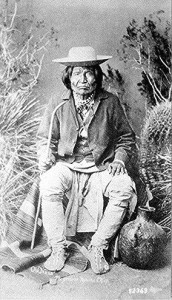I think the reason why many people don’t care for history is that textbooks and many teachers insist on drilling numbers and years. Battle X and skirmish Y, who became president and when a monarchy changed into a democracy. Who cares? I was one of those kids sitting in the classroom dreaming of escape when my history teacher droned on about Napoleon and Lord Nelson.

But here is the cool thing which I discovered when I began writing historical fiction. When you thrust your protagonist into an authentic historical setting full of challenges, where he eats beans and jerky, and sleeps on a straw sack. Where he escapes dukes and sits in dungeons. Or in the case of the αLPHA TRIALS’ sequel, where he lands in the midst of a gang of thugs in the New Mexico desert, burns to a crisp in the southwestern sun, makes friends with Billy the Kid, almost dies of thirst and a rattle snake bite only to be rescued by Apache Indians, then you make history come alive. And when that happens, learning is no longer a chore, but fun.

I’m especially proud of finding the amazing and heartbreaking story of the ChÃhéne (also Tcihene, Chihenne) or Warm Springs Apaches, a band of Chiricahua Indians, on the brink of extinction even in 1881. After one of its most famous leaders, Chief Victorio, died in a one-sided battle (in 1880), his elderly uncle, Kas-tziden, everyone called Nana became chief. He gathered a few remaining warriors and went on a two-month vengeance war through New Mexico. Nearly 80 years old, he rode over 3,000 miles, raiding settlements and cargo trains with the U.S. Army in hot pursuit. Except to the embarrassment of the U.S. government, the Army never caught Nana. Nor did they find any sign of an injured or dead warrior after battle. Because Nana never left anyone behind.
Only two years later, in 1883, and with the help of Indian scouts did the Army finally arrest Nana and his men in the Mexican mountains. The old man could barely walk and dragged a foot, but he was a dervish on the horse. And in 1885 he escaped one last time with Geronimo. But we all know the fate of the American Indian. Nana, a man who’d roamed New Mexico, Arizona and parts of Mexico for decades as a free man, died a prisoner, half-blind and forced into submission. He was 96 years old. (Anywhere from 89-96.)
Oh, and one more thing: Nana never lied.
